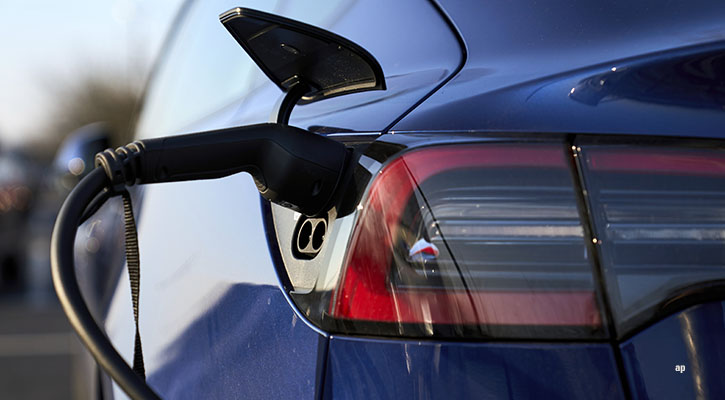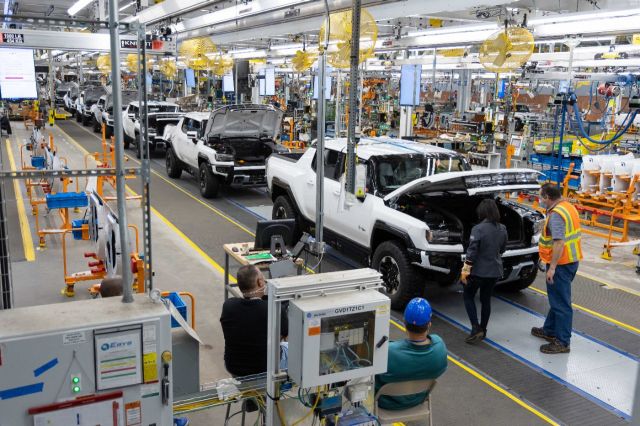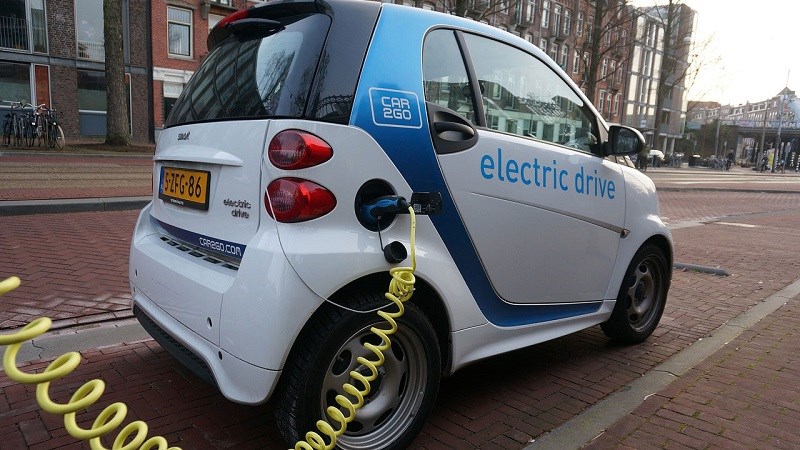INVESTMENT THESIS
We think General Motors' car models are of the best quality and design in decades. The company is already a leader in truck models, so a competitive lineup in all segments, combined with a much smaller cost base, leads us to think that GM will be printing money as vehicle demand recovers.
We think GM's earnings potential is excellent because it finally has a healthy North American unit and can focus its U.S. marketing efforts on just four brands instead of eight. The most critical cost-saving measure was setting up a voluntary employees' beneficiary association for the retiree health-care costs of the United Auto Workers. This saves GM about $3 billion a year; other benefit concessions and plant closings have drastically lowered GM North America's break-even point to U.S. industry sales of about 10.5 million vehicles, assuming 18%-19% share. The actual point varies based on mix and incentive levels. We think the normative demand for U.S. light vehicles is about 16.2 million-18.3 million units, so we expect GM to report excellent earnings growth as vehicle demand comes back during the next few years. We expect further scale to come from GM moving its production to 96% on global platforms by 2018 from just 39% in 2010 and from GM being in one of its largest new product rollouts ever.
Dramatically better pricing has helped GM to be profitable at volume levels that would have meant billions in losses a few years ago. For example, the new Cadillac CTS sells for as much as $8,000 more than the prior-generation CTS, and pricing will also be helped by the 2014 Chevrolet Impala receiving Consumer Reports' highest score of any sedan and being compared to a luxury vehicle. Simply put, GM makes products that consumers are willing to pay more for than in the past. It no longer has to overproduce in an attempt to cover high labor costs and then dump cars into rental fleets (which hurts residual values). It now operates in a demand-pull model where it can produce only to meet demand, is structured to break even at the bottom of an economic cycle, and is about to see the upside to having a high degree of operating leverage.
VALUATION
| Economic Moat | Fair value | Stewardship Rating |  |
||||
| None | USD 53.00 | Standard | |||||
| Moat Trend | Uncertainty | Sector | |||||
| Negative | High |
Cyclische consumptiegoederen - auto's |
|||||
BULLS
- GMNA's break-even point of about 10.5 million-11 million units is drastically lower than it was under the old GM. The company's earnings should grow rapidly as U.S. vehicle sales bounce back from the 2009 low.
- GM's U.S. hourly labor cost is about $5 billion compared with about $16 billion in 2005 under the old GM.
- GM can charge thousands of dollars more per vehicle in certain segments. Higher prices with fewer incentive dollars allow GM to get more margin per vehicle, which helps mitigate a severe decline in light-vehicle sales.
BEARS
- The cadence of a recovery in global vehicle demand is very uncertain, especially in Europe.
- Auto stocks are often sold off severely because of macroeconomic concerns--even if the bottom-up story looks attractive.
- The U.S. auto market is becoming more crowded each year. Hyundai and Volkswagen are likely to take more share over time from existing players such as GM.
________________________________________________________________
Lees ook deze aandelensanalyses van sectorgenoten:
Fiat
Overzicht alle aandelenanalyses >
20 Tips voor het beleggen in aandelen >
Meer weten over de methodologie achter Morningstar's beoordeling en waardering van ondernemingen en aandelen?
Hoe Morningstar aandelen onderzoekt en waardeert
Morningstar's sterrenrating voor aandelen
Vragen en antwoorden bij Morningstar's aandelenonderzoek
Het uitgebreide researchrapport van dit aandeel is beschikbaar voor institutionele beleggers, vermogensbeheerders en private bankers. Voor meer informatie over de ruim 1500 wereldwijde aandelen- en creditresearchrapporten kunt u contact opnemen met Morningstar via equitysales@morningstar.com.























